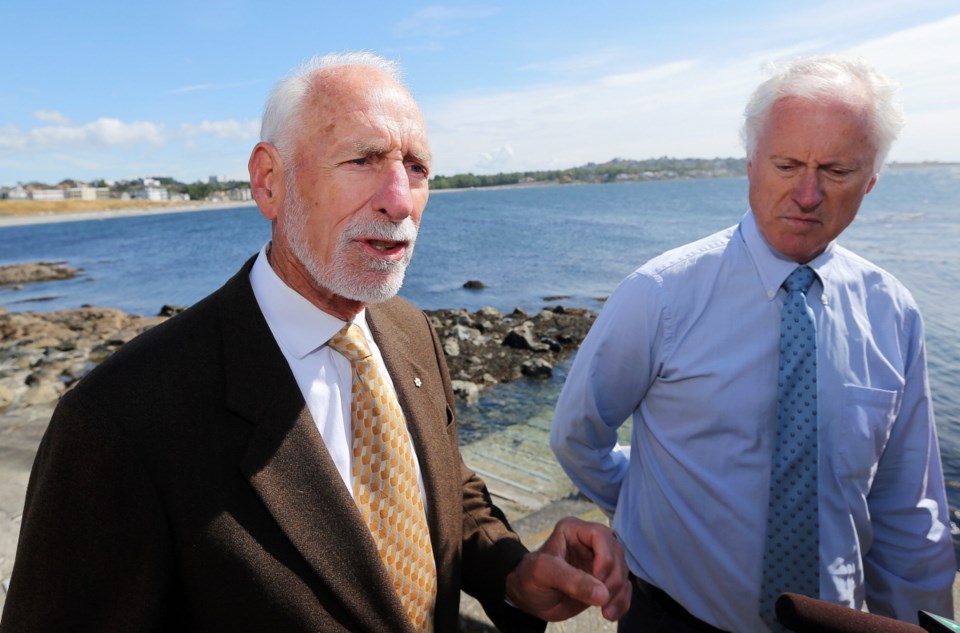Rather than trying to push ahead with expensive sewage treatment, the Capital Regional District should challenge the federal government’s “high risk” classification of Greater Victoria’s sewage system, says a local lobby group.
The federal government has classified the CRD’s practice of pumping raw, screened sewage through long, deep-water outfalls as high risk even though CRD’s monitoring data proves otherwise, said Brian Burchill, chairman of the Association for Responsible and Environmentally Sustainable Sewage Treatment or ARESST.
“What we want to do is do what the CRD should have done years ago and that is to present the science and the evidence to Ottawa to defend the current system,” Burchill said at a news conference near the Clover Point sewage outfall.
“This project to spend $1 billion of our tax dollars to replace the current system is quite an unnecessary project and we think that Ottawa ought to review the issue with the evidence that’s in the CRD database on the CRD website,” he said.
ARESST has long argued that deep-water outfalls into the frigid, fast-moving waters acts as a type of natural sewage treatment.
The groups notes that:
• Substance concentrations near the outfalls are better than water-quality guidelines.
• Coliforms from the outfalls rapidly die in the cold sea water.
• Metal concentrations in the discharges are below Canadian and EPA standards for drinking water.
• Risk to human health is low.
The group has written an open letter to Prime Minister Stephen Harper asking that the CRD’s sewage system receive a classification “consistent with the evidence provided by the CRD, the Institute of Ocean Sciences and regional medical health officers.”
Victoria Coun. Geoff Young, chairman of the CRD’s core area liquid waste management committee, agreed that the CRD board has never challenged the federal government’s assessment in court or even launched a public relations campaign in opposition.
But he said many of the arguments that were made over past decades no longer apply.
“There are substances that we’re putting into the water now that didn’t even exist then. We have become aware of the subtle, long-term effects on wildlife, for example, and the environment of endocrine disrupters and flame retardants and microplastics.”
The inclusion of advanced oxidization will address many of those substances of emerging concern, Young said.
He also said it would be disingenuous to fight the federal regulations while at the same time seeking and accepting federal grants for treatment.
“We didn’t think we could ride both horses: One, fight them tooth and nail in court or through the public relations battle try to convince them they shouldn’t apply the regulations to us, and Two, take the money.”



